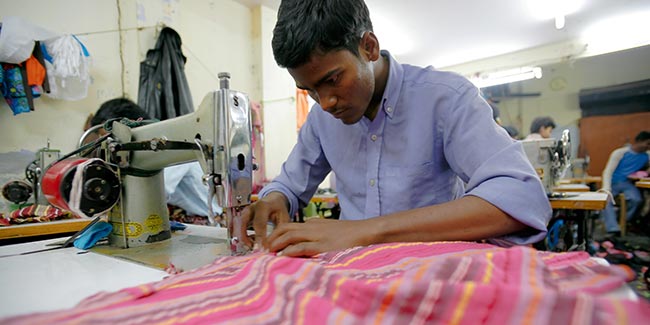How is an agreement concluded?
International Responsible Business Conduct (IRBC) involves multiple stakeholders – businesses, unions, NGOs and others – concluding IRBC agreements. Many different parties work together in such agreements. The idea is that such broad cooperation extends the influence of the agreements and leads to real improvements in working conditions, environmental pollution and other high-risk areas.
The SER guides this process, based on the following steps.
Step 1: Basic principles

The parties commit to achieving tangible results in international responsible business conduct. The agreements are based on the existing aims and standards laid down in the UN Guiding Principles on Business and Human Rights (UN GPs), the OECD Guidelines for Multinational Enterprises, and the ILO’s core labour standards.
This international framework is founded on three principles:
- The Dutch government has a duty to protect human rights, not only by respecting such rights itself, but also by preventing human rights violations by others, including businesses.
- Business must acknowledge their responsibility. The Dutch government, employers’ associations and unions, consumers and NGOs expect companies to transact business in a way that respects human rights and the environment.
- Stakeholders in production countries must be able to claim damages (access to remedy).
Step 2: Joining forces

Some problems are so complex that businesses cannot solve them on their own. IRBC agreements give businesses the opportunity to join forces with government and other stakeholders. Working together, they can take a structured, problem-solving approach to such problems. The international standards described in step 1 serve as their point of departure.
Step 3: Process and progress

The process leading to an agreement consists of approximately twelve steps. Since each sector faces unique problems and has its own set of dynamics, the number of steps leading to an agreement may be higher or lower. The steps are divided into three stages:
- Exploration phase
- Dialogue phase (the actual negotiations)
- Implementation phase (safeguarding the agreements)
Step 4: Approach

There are three ways to tackle problems.
- Businesses identify the actual and potential negative impact of their actions. They attempt to limit that impact and explain how they deal with the risks they have identified. This process is known as ‘due diligence’.
- Businesses work with unions and NGOs to develop a collective approach. The IRBC agreements document this approach.
- Finally, businesses carry out projects ‘on the ground’.
The agreements focus on the following OECD themes, and on subsidiary issues within those themes:
- Disclosure
- Human rights
- Employment and industrial relations
- Environment
- Consumer interests
- Science and technology
Step 5: Results

IRBC agreements bring parties together to produce results. The aim is to improve circumstances for groups that may feel negative effects, such as local workers and communities in regions where raw materials are being sourced, within a three- to five-year period.
Are you interested in signing one of the agreements? Please contact us.

